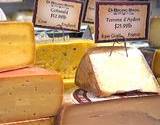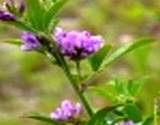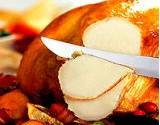|
Grandma's Vitamin B2
|
Vitamin B2 or Riboflavin is necessary for red blood cell formation, anti-body productions, cell respiration and growth. It alleviates eye fatigue and is important in the prevention and treatment of cataracts.
Riboflavin aids in the metabolism of carbohydrates, fats, and proteins. Together with Vitamin A, it maintains and improves the mucous membranes in the digestive tract.
Vitamin B2 also facilitates the use of oxygen by the tissues of the skin, nails, and hair, eliminates dandruff, and helps the absorption of iron and Vitamin B6.
Consumption of adequate amounts of Riboflavin is important during pregnancy, because a lack of Riboflavin can damage a developing fetus even though the woman shows no signs of deficiency.
Riboflavin is needed for the metabolism of the Amino Acid Tryptophan, which is converted into niacin in the body. Carpal tunnel syndrome may benefit from a treatment program that includes, Vitamin B2 and Vitamin B6.
Riboflavin deficiency systems include:
- cracks and sores in corners of mouth
- eye disorders
- inflammation of the mouth and tongue
- skin lesions
- dizziness
- hair loss
- insomnia
- light sensitivity
- poor digestion retarded growth
- slowed mental response
 |  |  |
Natural Sources of Vitamin B2
High levels of Riboflavin are found in the following foods:
- cheese
- egg yolks
- fish
- legumes
- meat
- milk
- poultry
- spinach
- whole grains
- yogurt
- asparagus
- avocados
- broccoli
- Brussels sprouts
- currents
- dandelion greens
- dulse
- kelp
- leafy greens
- mushrooms
- molasses
- nuts
- watercress
Herbs that contain Riboflavin
- alfalfa
- bladderwrack
- brudock root
- catnip
- cayenne
- chamomile
- chickweed
- eyebright
- fennel seed
- fenugreek
- ginseng
- hops
- horsetail
- mullein
- nettle
- oat straw
- parsley
- peppermint
- raspberry leaves
- red clover
- rose hips
- sage
- yellow dock
Comments
Factors that increase the need for Riboflavin include the use of oral contraceptives and strenuous exercise. The B vitamin is easily destroyed by light, antibiotics, and alcohol.
Return from Vitamin B2 Riboflavin to Grandma's Vitamin List Guide
Return to Grandma's Herbal Remedies Guide Home





